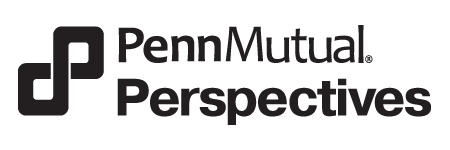10 Key Tips for Starting a Business
You’ve decided that now is the perfect time to start that new business you’ve always talked about. You’re determined to stop talking about it and to start making it happen. But before you start, you may want to consider a few tips that can help make your business successful.
Start with a comprehensive business plan. This provides a solid foundation for building your business, ensuring that you’ve completely thought through what you are doing, why you are doing it, how you are doing it, and the potential risks you face. But this isn’t a once-and-done exercise. Review and refresh your business plan on a regular basis.
Share your vision and your passion. Your business plan should have clear mission and vision statements, ones that resonate with you. You want something that will push you out of bed in the morning and keep you focused during challenging times. The mission statement covers the core of why your business exists. The vision statement looks towards the future, envisioning yourself and your company in one, three, or five years. Don’t keep this to yourself, either. Tell people every day about your company’s mission and ask for their help in making it happen. With the right mission, people will be happy to help.
Establish goals and track your progress. You should have clear, measurable and precise goals. More importantly, you should determine the tactics or actions needed to accomplish those goals and the business metrics to track your progress. The metrics are essential, because they will help you gauge the success of your business. Note that revenue and profit are outcomes, best used as lagging indicators. They tell you how well you did in the past, not how well you are going to do in the future. Revenue and income aren’t necessarily under your control, but your actions are.
Focus on measuring leading indicators. Lead indicators are the things you can control. While tracking revenue is important, what is even more critical is measuring the activities that are most likely to generate revenue. How many people did you talk to today about your business? How many qualified prospects do you have? How many proposals did you send out this week? By tracking such activities, you will come to understand how they relate to your business results. For example, if it typically takes you five conversations to generate one sale, tracking the number of conversations will enable you to both forecast future revenues and understand what adjustments are needed to increase revenue.
Keep a budget and mind your cash flow. Few things are more important to a business than the flow of money in and out of a business, known as cash flow. Keeping a budget can help ensure that your business is cash flow-positive, and a business that generates cash provides fuel for its own health and continued growth. A good understanding of your revenue streams will give you an idea of how much you can spend on marketing and other aspects of the business, including how much you can take in salary that particular month.
Know how you are going to fund your business. There are few businesses that are self-sustaining from the start. Most require an infusion of cash to start and to continue operations. You will also need money yourself to live on while the business is getting started, otherwise you will be starving your business of the cash it needs to survive. There are many ways to fund a new business – you might be able to fund it yourself. Personally, I funded my second business with cash flow I was generating from my first business. There are many different types of loans available, from the Small Business Administration (SBA), for example. Banks will sometimes provide loans to start a business, though they generally require personal collateral as a guarantee. Angel funds and private investors can also provide funding, but they will expect equity in the business, a high return on their investment, and a way to cash out either by going public or selling the company. Permanent life insurance can also help you start your business, either serving as collateral for a loan or as a source of funding by tapping into the cash value.* If it worked for Walt Disney when he was building Disneyland, it can work for you.
Define your marketing approach. You could be the most knowledgeable person in the world, and have the best product or service, but if you don’t have a great way to tell people about it, or convert people into customers, you don’t really have a business. In my conversations with business owners, often the biggest challenge they face is understanding how to connect with potential customers.
Build a client database. Customer relationship management (CRM) software will enable you to keep track of prospects or potential clients and make the necessary follow-ups more effective. It typically takes upwards of five contacts before someone becomes a customer, so you need a way to nurture your prospects. And, as your business scales up in size, a CRM system will enable you to keep track of thousands of clients. Plan for growth.
Put systems and processes in place. For example, if you have a service-oriented business, what does your client or customer onboarding process look like? While it doesn’t have to be exactly the same every single time, having a system in place – and documenting it – will ultimately save you time and effort. Also, as you expand and add staff, it becomes a lot easier to communicate your expectations to your new team members. In my office, we joke about how we even have a written procedure for running the postage machine, which helps when someone new joins our office. Having that documented process means I have more time to work on the more critical components of running my business.
Get the right team of financial professionals. At a minimum, business owners need to have a good accountant or a CPA, a banker, and an attorney. It’s important to have all the legal, financial and tax requirements done properly. I think it’s good to have a financial professional working with you on a personal level, ensuring you have the personal financial resources, as well. People often end up giving up on their business early because they’ve run out of money. A financial professional can help you anticipate your personal financial needs so that you know you have adequate reserves, as well as a plan in place for cash infusion into the business, if needed.
Starting and running a business takes a lot of blood, sweat and tears. Believe me, the effort and the energy is worth it, at least it has been from my experience. Remember, though, that successfully running a business means you need to spend just as much time working on the business as you do working in the business. That is, if you spend all your time doing work for your customers – “working in the business” – that you will neglect those things that will strengthen and grow your business for the long term – “working on the business.”
Good luck, don’t hesitate, get started today!
* Accessing cash value will reduce the death benefit and policy values, and may be taxable.
This post is for informational purposes only and should not be considered as specific financial, legal or tax advice. Depending on your individual circumstances, the strategies discussed in this presentation may not be appropriate for your situation. The information in this material is not intended as tax or legal advice. Always consult your legal or tax professionals for specific information regarding your individual situation.
3418231RB_Jan23






